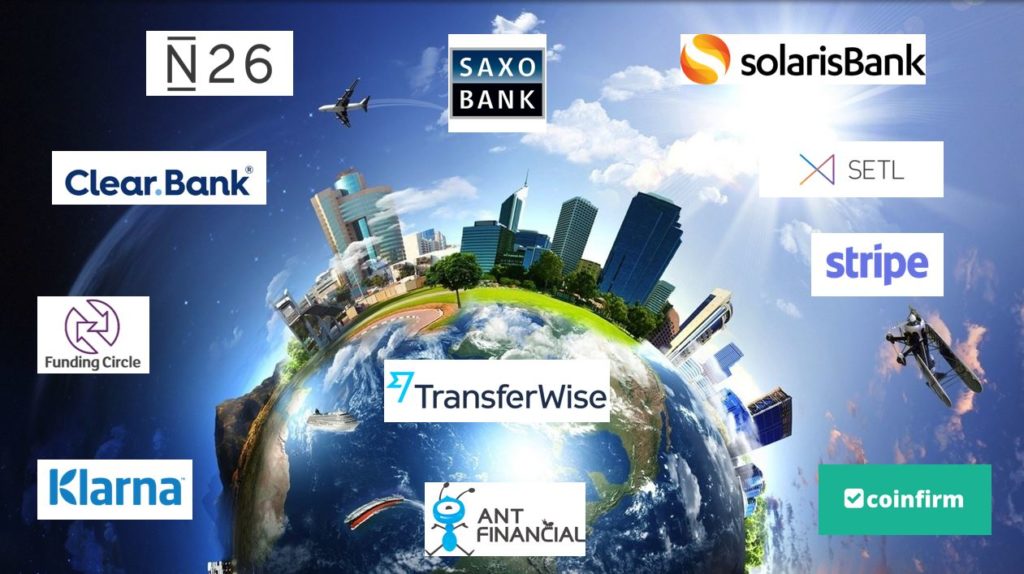
Four years ago, I was using this slide in my presentations.
“Those who recognise that banks are doing 1000 things average, will naturally come together to do 1000 things brilliantly.”
The idea was that FinTech start-ups would start to align with each other to create global platforms. The first and biggest of those announcements came out yesterday
Stripe will allow retailers to add Klarna’s buy-now-pay-later service as a purchasing tool for customers, a deal that pairs up two of the world’s most valuable financial technology startups.
I still have this dream where a few leading FinTech firms start to combine a jigsaw of APIs and apps to create a fully integrated global platform for money … but it’s not a dream. It’s a reality.
As more and more FinTech firms start to stretch their wings and flex their muscles, we are seeing more and more impact on old banking. Old banks are responding to this – just look at bank acquisitions of FinTech firms if you don’t believe me – but the result is that we will see global financial platforms. Some may be BaaS-based, and delivered by a fully licensed bank, and some will be a collegiate platform that combines all of these amazing services through great code.
But then that begs the question: who would lead such a collegiate?
Answer: a bank.
This is why when people say we need banking, but we don’t need banks, I always ask: do you know what you’re talking about?
Most don’t, because they don’t understand what banking does. A bank offers payments processing, cross-border transactions, trade finance, supply chain management, institutional investors and a lot more. It’s not a simple thing. In fact, it’s a very complicated thing, which is why I refer to the Rubik’s cube of banking.
There are so many pieces, but the firm that assembles those pieces the best way for the customer is the one that wins. So, think about it. A bank is assembling 1,000 pieces of digital code from 1,000 providers around the world, such as the likes of Stripe and Klarna.
The bank that assembles them in the best way is the leader of the collegiate. After all I, as a customer, could never have the time to checkout 1,000 companies who do finance. I want someone to do that for me.
This is the space I’ve talked about for so long now (15 years), but the key is that the deliverer of 1,000 pieces of financial code is a bank. A licensed and regulated bank. Not some airy-fairy flaky company, but a company that is liable for any losses if I bank with it. That’s why it’s called a bank.
So yes, the partnership of Stripe and Klarna is significant, but what would be more significant is when a licensed and regulated bank partners with them. Whether that be JPMorgan Chase or Starling, I don’t care, but the delivery of Banking-as-a-Service on a globally networked platform is coming. And it will come through a collegiate of best-in-class providers of financial code, fronted by a fully licensed and regulated bank.
Chris M Skinner
Chris Skinner is best known as an independent commentator on the financial markets through his blog, TheFinanser.com, as author of the bestselling book Digital Bank, and Chair of the European networking forum the Financial Services Club. He has been voted one of the most influential people in banking by The Financial Brand (as well as one of the best blogs), a FinTech Titan (Next Bank), one of the Fintech Leaders you need to follow (City AM, Deluxe and Jax Finance), as well as one of the Top 40 most influential people in financial technology by the Wall Street Journal's Financial News. To learn more click here...


